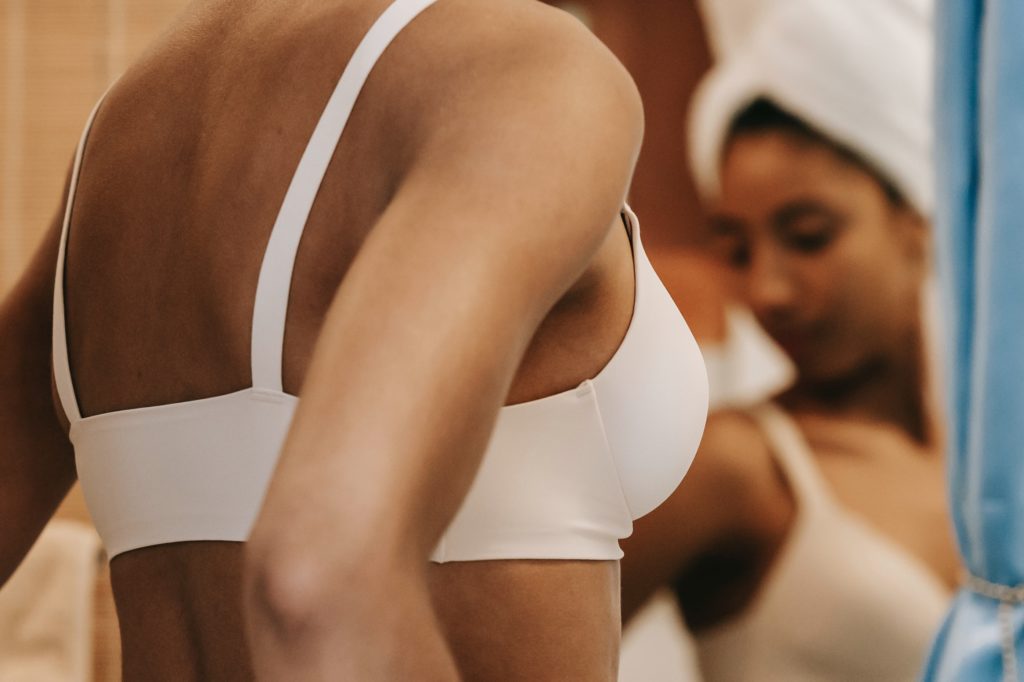Feeling soreness in your breasts every now and then isn’t cause for concern. Most women experience breast soreness, or pain, from time to time. But the association between a sore breast and breast cancer, or other more serious conditions, can bring up feelings of fear and worry. This is why it’s essential to know what causes sore breasts and when to make an appointment to check in with your doctor.
What causes breast soreness?
If you feel pain or soreness in one or both of your breasts, you’re in good company. Up to 70% of women report some type of breast pain over the course of their lives, though the true numbers are likely higher.
Breast pain also goes by a more technical term: mastalgia. Mastalgia can impact your quality of life in different ways, from your quality of sleep to your sexual health and mental wellbeing. The intensity of breast soreness also varies from woman to woman. Some report a constant, low ache while others experience a sharp, tight, or heavy sensation in one or both breasts.
Mastalgia also impacts more pre-menopausal women than menopausal or post-menopausal women. In fact, of the women who report mastalgia, or breast pain, a majority are between the ages of 30 to 50. As your estrogen levels rise and fall over the course of your menstrual cycle, your likelihood of experiencing breast pain increases. As estrogen levels steadily decline during menopause, so too does your potential to experience breast soreness.
Cyclic Mastalgia
Cyclic mastalgia follows your menstrual cycle and directly correlates to your hormone levels. Most women who experience cyclic mastalgia feel pain or tenderness in both breasts during the week leading up to their periods, also known as the luteal phase. The hormones estrogen and progesterone cause the ducts and glands in your breasts to grow and hold on to water during this phase.
This is why breast swelling and lumpiness are also common symptoms of cyclic mastalgia. Once your period begins, the pain and swelling goes away. What’s interesting is that though this is a commonly held assumption in the medical community, there is no complete research to date that can explain why this happens or the connection between breast pain and our hormones.
Perimenopausal Mastalgia
Perimenopausal mastalgia is similar to cyclic mastalgia in that it refers to breast pain that relates to a change in hormone levels. During perimenopause, your hormones go a little “all over the place” leading up to menopause. Estrogen, or estradiol, increases beyond your typical premenopausal estrogen levels. It makes sense, then, that a common symptom of these sudden changes is breast soreness.
Non-Cyclical Mastalgia
Non-cyclical mastalgia is an overarching term used to describe all types of breast soreness and pain that are not related to hormone levels. It is the most wide-ranging type of breast pain and can be difficult to determine its source. Post-menopausal women are most likely to experience non-cyclical mastalgia, though it can happen to any woman at any age.
Infection, also known as mastitis when referring to your breasts, certain medications, an injury, ill-fitting or unsupportive bras, a benign lump, and arthritis are all potential underlying causes of non-cyclical mastalgia.
A primary concern women have is that breast pain, especially in post-menopausal women, is a symptom of cancer. But breast pain or soreness is not typically a sign of cancer. Of the women diagnosed with breast cancer, only 2-7% report breast pain as a symptom.
Breast Soreness: When to Call the Doctor
Most of the time, cyclical and non-cyclical breast pain goes away on its own, but it’s important to know when to see a doctor. If you have non-cyclical breast pain that is continuous and does not seem to go away and you notice discharge or observe any changes to your skin, it’s a good idea to make an appointment.
Your doctor will perform a physical examination and may recommend further imaging such as an ultrasound or mammogram. In some cases, your doctor may take a biopsy depending on your medical history and the results of the physical exam.
Common Treatments for Breast Soreness
There are a variety of treatment methods available to help you find relief from breast soreness. First, make sure that your bra fits well and provides ample support. You can also alternate hot and cold compresses and try gentle self-massage to the sore areas.
For a physical injury or recurring soreness brought on by cyclical mastalgia, many women take non-steroidal anti-inflammatory drugs (like Aspirin or Ibuprofen) for immediate pain relief. It’s always a good idea to check in with your doctor to see if NSAIDs are the right option for you.
If your breast pain or soreness is bringing up feelings of worry, or if you observe any changes in your breast tissue (such as a lump or thickening), make an appointment to check in with your doctor.
